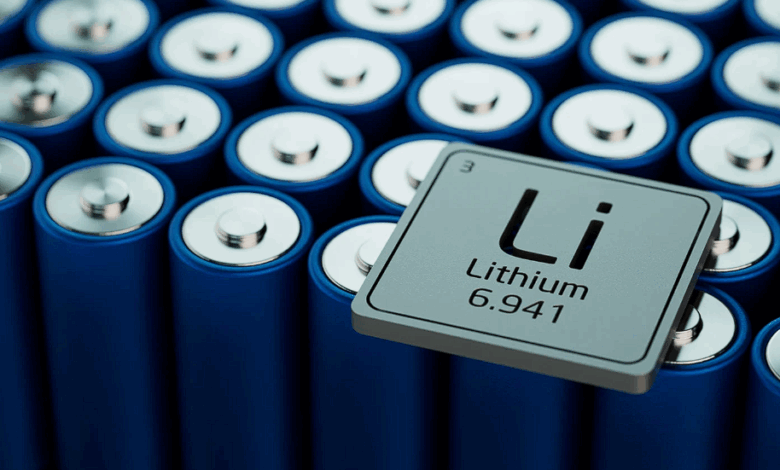How Long Do Lithium Batteries Last? Lifespan, Charge Cycles, Pros & Cons Explained

Lithium-ion batteries have revolutionized the way we power everything from smartphones and laptops to power tools and electric vehicles. But a question many users ask is: How long does a lithium battery actually last?
In this guide, we’ll cover the average lifespan of lithium batteries, how many charge cycles you can expect, tips to extend battery life, and a detailed breakdown of the pros and cons.
Table of Contents
- What is a Lithium-ion Battery?
- How Do Lithium Batteries Work?
- Average Lifespan of Lithium-ion Batteries
- Lithium Battery Storage Lifespan
- How Many Charge Cycles Can You Expect?
- Tips to Extend Lithium Battery Life
- Pros and Cons of Lithium-ion Batteries
What is a Lithium-ion Battery?
A lithium-ion battery is a type of rechargeable battery that uses lithium ions as the primary charge carrier. These batteries are widely used because they are lightweight, have a high energy density, and can be recharged hundreds or even thousands of times.
Unlike older battery technologies such as nickel-cadmium (NiCd) or lead-acid, lithium-ion batteries offer improved efficiency and a much lower rate of self-discharge.
How Do Lithium Batteries Work?
Lithium-ion batteries are made up of individual cells where lithium ions move between the positive (cathode) and negative (anode) electrodes during charging and discharging cycles.
These batteries are known for:
- Faster charging times
- Higher power output
- Lightweight construction
- Minimal maintenance
On average, lithium-ion batteries self-discharge at a rate of just 2% to 5% per month and operate best within a temperature range of -20°C to 55°C. Overheating can reduce both performance and lifespan.
Average Lifespan of Lithium-ion Batteries
So, how long does a lithium battery last?
According to The Journal of Power Sources, lithium-ion batteries typically last 2 to 3 years or 300 to 500 charge cycles. With proper care, this lifespan can extend even further. Some high-end batteries, such as certain lithium iron phosphate (LiFePO4) models, can deliver thousands of cycles.
Battery lifespan depends on several factors:
- Frequency of use
- Operating temperature
- Load capacity
- Charging habits
Pro Tip: For optimal battery health, avoid fully discharging or fully charging the battery. Instead, aim to use 20–85% of its capacity per cycle.
Lithium Battery Storage Lifespan
When stored properly, lithium-ion batteries can last 3 to 6 years on the shelf. However, storage conditions play a key role in preserving battery health.
Storage Tips:
- Store in a cool, dry place
- Keep the charge level at around 50%
- Avoid extreme temperatures, especially above 45°C
How Many Charge Cycles Can You Expect?
A charge cycle is typically defined as one full discharge and recharge of a battery. However, partial charges also contribute to the total cycle count over time.
Standard lithium-ion batteries generally provide 700 to 1000 charge cycles. Some premium models—like the Lossigy LiFePO4 200Ah—can offer up to 5000 cycles, especially when used in solar or marine applications.
Tips to Extend Lithium Battery Life
To maximize the lifespan of your lithium-ion battery, follow these simple practices:
- Avoid Heat: High temperatures degrade lithium cells. Keep your battery in a cool environment.
- Don’t Overcharge or Deep Discharge: Charge up to 85–88% and avoid draining the battery completely.
- Minimize Load Stress: Use up to 80–85% of the battery’s rated capacity. Avoid putting it under constant heavy load.
- Use Partial Charging: Regularly topping off the battery is better than deep charging cycles.
Pros and Cons of Lithium-ion Batteries
Pros:
- High energy density: More power in a compact size
- Fast charging: Takes less time to charge compared to older battery types
- Low self-discharge: Only 2–5% per month
- Long shelf life: 3 to 6 years when stored properly
- No cool-down needed: Can be used for hours continuously
Cons:
- Sensitive to heat: High temperatures can shorten lifespan
- Not ideal for deep discharges: Draining to 0% reduces cycle life
- Higher cost: More expensive upfront than lead-acid or NiCd batteries
Lithium-ion batteries are a superior choice for powering today’s electronics, tools, and vehicles. While they do come at a higher price, their performance, reliability, and longevity make them a smart investment. With proper care—like avoiding heat and deep discharges—you can dramatically increase their lifespan and get the most out of every charge.




![How to Bypass CO Sensor on Generator – [4-Step Safety Guide]](https://www.generator411.com/wp-content/uploads/2025/08/co-sensor-on-generator-390x220.png)